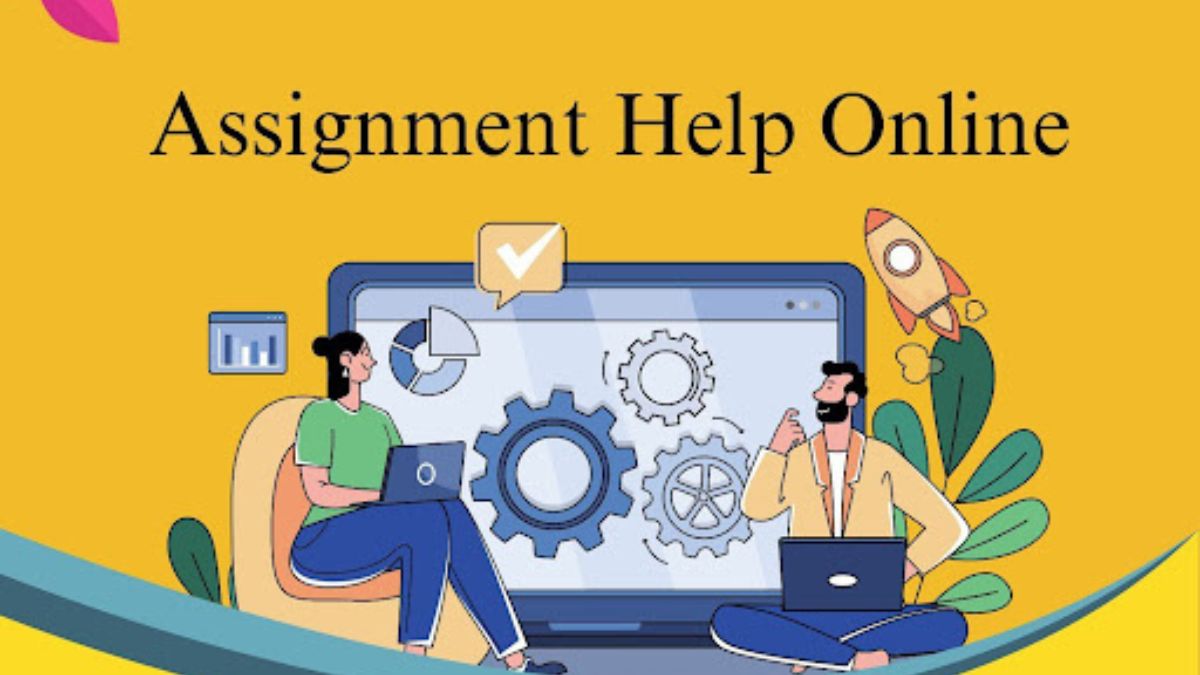EDUCATION
Navigating Diverse Essay Types: A Student’s Essential Guide

Essay writing is a big part of university life in the UK, regardless of what you’re doing. But not all essays are created equal. Some require you to argue, some require you to analyse, and some simply require you to describe. It’s knowing which one you’re doing that will lead to success—and this is precisely where students head and ask for assignment help.
This guide is meant to accompany you along your journey through the most prevalent types of essays, teaching you how to tackle each one with confidence, clarity, and direction. You may be a new college student or well-established in university life, but you will find useful tips and learning guidance to assist you in writing professionally.
Why Essay Types Matter in Academia
Knowing the various types of essays is not simply a matter of understanding what a teacher is looking for. It is learning to think, organize ideas, and make sound arguments. If you misunderstood the assignment, your whole essay may be off target, even if you’re a strong writer.
Different essay types have specific goals. Some aim to inform, some to persuade, and others to reflect. Learning how to switch between them is a skill worth mastering—and one that pays off not just in uni, but in professional life too.
Most Common Essay Types Every UK Student Should Know
Let’s break down the major types of essays you’ll come across, and how to tackle them effectively.
1. Descriptive Essays: Brining Ideas to Life
Purpose: To bring a clear picture into the reader’s mind.
Features:
- Sensory details and imagery
- Strong visual descriptions
- Chronological or spatial structure
Tips:
- Show rather than tell.
- Don’t be too adjective-laden.
- Use one definite topic or setting.
These essays don’t seem simple, but they do need some creative thinking and a good language control.
2. Narrative Essays: Telling a Story for a Purpose
Purpose: To tell a real or imaginary experience.
Features:
- Clear structure: beginning, middle, and end
- Usually in first-person
- Has conflict and resolution
Tips:
- Stay close to the message or lesson of the story.
- Keep writing interesting and flowing.
- Don’t go off on a tangent or add extraneous information.
Narrative essays are common in freshman university years, particularly in personal development modules.
3. Expository Essays: Explain It All
Purpose: To explain or inform in a neutral, objective tone.
Characteristics:
- No personal opinion or emotive language
- Logical structure with clear topic sentences
- Focused evidence-supported analysis
Tips:
- Use simple examples to support your points.
- Restrict a paragraph to one point.
- Be matter-of-fact and objective.
Expository writing is typical across the majority of UK academic disciplines and is an integral component of university exams.
4. Argumentative Essays: Make Your Case
Purpose: To argue a point and persuade the reader.
Characteristics:
- A clear thesis or position
- Strong arguments and evidence
- Refutations and counterarguments
Advice:
- Remain calm and reasonable—no temper tantrums.
- Reply to opposition arguments in respect.
- End with a firm conclusion to substantiate your argument.
Assignment help for such an essay is in high demand among most students because it requires critical thinking and excellent research skills.
5. Analytical Essays: Peeling Beneath the Surface
Purpose: To analyze, interpret, and investigate a subject or problem.
Characteristics:
- Extensive analysis of the subject
- Scrutiny of underlying meaning or structure
- Even-handed tone and rational reasoning
Tips:
- Use examples to substantiate your analysis.
- Keep it on subject—don’t describe, analyze.
- Link your conclusions to your overall argument.
This essay form is particularly critical in literature, media, sociology, and other theory-driven subjects.
6. Compare and Contrast Essays: Pinpoint the Similarities and Differences
Purpose: To investigate the ways in which two or more things are alike or different.
Features:
- Either block or point-by-point organization
- Specific criteria for comparison
- Objective tone
Tips:
- Select relevant topics to compare.
- Dwell on greater insights, rather than surface aspects.
- Use transitions to indicate shifts between similarity and difference.
This type is typical in humanities and history modules.
7. Critical Essays: Evaluate and Assess
Purpose: To criticise and analyse a work or theory.
Features:
- Must be argued clearly and balanced assessed
- Reference and evidence use to support assertions
- Combines analysis with critical viewpoint
Tips:
- Keep the tone formal throughout.
- Support every judgment with evidence.
- Be academic, even when disagreeing.
Students tend to come here to ask for assignment help, particularly when they are struggling with hard theories or texts.
Core Features of All Essay Types
Even though essay types may vary, there are some features which are always a necessity:
✔ A Well-articulated Thesis Statement
Establishes your central argument and dictates the tone of the rest of the essay.
✔ Logical Organization
Utilize a good introduction, well-organized body paragraphs, and a strong conclusion.
✔ Evidence and Explanation
Support your arguments using facts, figures, examples, or quotes.
✔ Coherence and Flow
Connect your thoughts with transitions to engage the reader.
✔ Academic Tone
Keep your tone informal but respectful and purposeful.
Planning: The Pillar of Every Great Essay
Impulsiveness in writing leads to confusion and poor arguments. Here’s how to plan like a professional:
- Know the Question – Determine key words and determine the type of essay.
- Brainstorm Ideas – Write down themes, arguments, and examples.
- Organise Your Structure – Plan out how you’re going to lay out your points in a logical structure.
- Do Focused Research – Be on the lookout for pertinent and trustworthy sources.
- Create a Draft Outline – Plan out what role each paragraph will play within the essay.
These steps keep your writing in order and on track.
Common Pitfalls Students Should Avoid
Good writers make mistakes sometimes too. These are some pitfalls to avoid:
- Not adhering to the essay question correctly
- Including unnecessary information
- Repeating ideas throughout various sections
- Using personal anecdotes in formal essays
- Failing to reference or cite appropriately
- Jumpy thinking between ideas without a smooth flow
When unsure, an assignment help can assist in neaten your structure and address weak spots prior to submission.
How to Improve Your Essay Writing Ability Over Time
It is a slow process to develop your writing. Here’s how you can develop your skillset:
- Read academic essays constantly – Develop an ear for tone, structure, and vocabulary.
- Write constantly – Practice makes you discover your voice and develop confidence.
- Invite critique – Have tutors or peers provide you with constructive feedback.
- Edit mercilessly – Eliminating padding and simplifying your argument makes you stronger.
And if you need further advice, reputable online assignment assistance agencies can provide expert advice and writing assistance specific to your academic needs.
Applying Essay Types in Exams and Timed Tests
Essay questions are typical of UK exams. Familiarity with the question type can enable you to write more effectively under time pressure:
- Argumentative questions call for clear position and main evidence.
- Analytical questions require more interpretation and structuring.
- Compare-and-contrast questions require systematic, side-by-side judgments.
Practice for mock essays is an excellent idea to achieve this.
Conclusion: Acquire Confidence with the Correct Essay Strategy
Learning and practice of various sorts of essays imparts an educational advantage. Either a descriptive or analytical essay, getting accustomed to the aim and structure of your essay can enable you to save time, pick up higher marks, and less stress.
If time is of the essence, or you’re having trouble organizing, availing professional assignment assistance is a wise and pragmatic option. Third-party academic assistance such as Assignment in Need(assignnmentinneed.com) can offer specific assistance, enabling you to deliver better-quality, well-structured essays that meet the standards of a university.
Essay composition doesn’t have to be onerous. With proper methodology and acuity of perception, you can approach any essay with assurance.
Start with knowing your essay type, being prepared, and writing with intention. Your college life is worth no less.
EDUCATION
Master Arabic Conversation with Riwaq Al Quran’s Expert Instructors

Learning Arabic can open doors to understanding the Quran, connecting with Arab culture, and improving communication skills. Riwaq Al Quran offers structured Arabic conversation courses led by expert instructors, helping students gain fluency in a natural and engaging way. Whether you’re a beginner or looking to refine your speaking skills, Riwaq Al Quran provides a supportive learning environment with personalized guidance. This article explores how their courses work, the benefits of learning Arabic conversation, and why Riwaq Al Quran stands out as a trusted platform for language learners.
What is Riwaq Al Quran?
Riwaq Al Quran is an online learning platform specializing in Quranic and Arabic studies. Their courses are designed to help students of all levels improve their understanding and fluency in Arabic, with a strong focus on conversation skills. The instructors at Riwaq Al Quran are highly qualified, ensuring that learners receive accurate pronunciation, grammar guidance, and real-life speaking practice.
The platform offers interactive lessons, one-on-one sessions, and group discussions to enhance learning. Students can access structured courses that cover vocabulary, sentence formation, and dialogue practice. Riwaq Al Quran also integrates cultural insights into lessons, helping learners understand context and usage in everyday conversations.
Why Learn Arabic Conversation?
Arabic is one of the most widely spoken languages in the world, with deep cultural and religious significance. Mastering Arabic conversation can benefit learners in several ways:
- Better Quran Understanding: Conversational Arabic helps in comprehending Quranic verses and Islamic teachings more deeply.
- Enhanced Communication: Speaking Arabic allows for smoother interactions with native speakers, whether for travel, work, or personal connections.
- Cultural Appreciation: Learning the language provides insight into Arab traditions, literature, and history.
- Career Opportunities: Fluency in Arabic can open job prospects in translation, diplomacy, and international business.
By focusing on conversation, Riwaq Al Quran ensures that students can confidently speak Arabic in real-life situations. See more
How Riwaq Al Quran Helps You Master Arabic Conversation
The instructors at Riwaq Al Quran use proven teaching methods to develop speaking skills effectively. Their approach includes:
- Personalized Lessons: Courses are tailored to individual learning speeds and goals.
- Interactive Practice: Students engage in dialogues, role-playing, and listening exercises.
- Pronunciation Correction: Instructors provide immediate feedback to refine accent and fluency.
- Real-Life Scenarios: Lessons include common conversations, such as greetings, shopping, and discussions on various topics.
This structured method ensures steady progress, making it easier for learners to retain and apply what they study.
The Role of Expert Instructors at Riwaq Al Quran
Qualified teachers play a crucial role in language learning. Riwaq Al Quran selects instructors with strong backgrounds in Arabic linguistics and teaching experience. They focus on:
- Clear Instruction: Breaking down complex grammar into simple explanations.
- Encouraging Participation: Creating a comfortable space for students to practice speaking without hesitation.
- Cultural Context: Teaching not just words but also how they are used in different social settings.
With their guidance, students gain confidence in holding conversations naturally.
Key Features of Arabic Conversation Courses at Riwaq Al Quran
The courses at Riwaq Al Quran are designed for practical learning. Some standout features include:
- Structured Curriculum: Lessons progress from basic phrases to advanced discussions.
- Flexible Scheduling: Students can choose timings that fit their routines.
- Interactive Tools: Audio clips, visual aids, and quizzes reinforce learning.
- Progress Tracking: Regular assessments help students measure improvement.
These elements ensure a well-rounded learning experience.
Tips for Improving Arabic Conversation Skills
While Riwaq Al Quran provides expert guidance, students can also practice outside lessons. Here are some useful tips:
- Listen to Native Speakers: Watch Arabic shows, podcasts, or news to improve comprehension.
- Speak Daily: Practice with friends, language partners, or even by talking to yourself.
- Use Flashcards: Memorize common phrases and vocabulary regularly.
- Join Language Groups: Engaging in discussions with other learners can boost confidence.
Consistent practice accelerates fluency.
How Riwaq Al Quran Stands Out
Many platforms offer Arabic courses, but Riwaq Al Quran focuses on practical conversation skills. Their emphasis on interactive learning, expert instructors, and cultural integration makes them a preferred choice. Students appreciate the structured yet flexible approach, ensuring steady progress in speaking abilities.
Conclusion
Mastering Arabic conversation is achievable with the right guidance and practice. Riwaq Al Quran provides expert-led courses that build fluency through interactive and structured lessons. Whether for religious, professional, or personal growth, their approach ensures learners speak Arabic confidently. By combining expert instruction with practical exercises, Riwaq Al Quran helps students unlock the full potential of their language journey. Start your Arabic learning experience today and see the difference expert teaching can make.
EDUCATION
How Can You Start Learning Amharic Through Online Lessons at Home? A Beginner’s Guide to Effective Virtual Language Study

Learning a new language from home is easier than ever with digital resources and virtual lessons. Amharic, the official working language of Ethiopia, is available to learn through different platforms and tools designed to fit all levels and learning styles. Anyone can start learning Amharic through online Amharic classes in just a few steps, focusing on practice, native speakers, and engaging lessons.
Online Amharic classes offer flexible scheduling, personalized feedback, and direct interactions with fluent speakers. Learners can connect with native tutors and join lessons tailored to their needs, helping them build speaking confidence. Starting with the alphabet, vocabulary, and simple phrases, students can progress at their own pace and quickly hear their own improvement.
Getting Started With Online Amharic Lessons
A person can begin learning Amharic at home by using the right online tools, creating a study space, and building a routine that fits their goals. Breaking the process into smaller steps makes learning new vocabulary, grammar, and conversation skills much simpler.
Choosing the Right Online Platforms
Different online lessons and apps offer video, audio, and interactive activities. Some focus on vocabulary building through games, while others teach grammar or real-world phrases. It helps to look for platforms with practice exercises and native speaker audio, which allow the learner to hear clear pronunciation.
A user might prefer lessons that track progress, give feedback, or provide conversations with real speakers. Some online platforms let you download materials, so learning can continue offline if needed. Comparing features, such as mobile access, range of lessons, and teaching style, helps the learner pick the best option for their needs and level.
Setting Up a Productive Home Learning Environment
A quiet, comfortable area helps a person stay focused during lessons. Keeping this spot clean and free from distractions makes it easier to concentrate. They might use headphones to block out noise or small speakers for listening to pronunciation.
It helps to have a notebook ready for taking notes or writing down new words. Having a charged device, such as a laptop or tablet, close by is important for joining lessons. Setting up a study schedule, using a clock or reminders, helps the learner stay on track and avoid skipping sessions.
Establishing a Personalized Study Plan
Everyone learns at a different pace, so setting personal goals is important. Someone might start with the alphabet and common phrases before moving on to short conversations or grammar practice. They can split study time between listening, speaking, reading, and writing.
A personalized plan could include reviewing vocabulary every day, practicing speech out loud, and taking short quizzes to check progress. It is helpful to adjust the schedule if a specific topic seems difficult or easy. Regular review and small rewards can keep motivation high while making steady progress.
Maximizing Progress in Amharic Language Learning
Consistent effort, the right resources, and active practice can help learners build real progress in Amharic. Regular feedback and practical use of the language encourage steady growth in skills and confidence.
Incorporating Interactive Practice and Immersion
Interacting with Amharic in real-life situations helps learners remember what they study. Using audio or video lessons, practicing with flashcards, and repeating aloud can help with pronunciation and listening. Activities like labeling items around the house with their Amharic names can make vocabulary stick.
Regular role-play or speaking exercises with a tutor or friend will help students use phrases in context. Watching shows or listening to music in Amharic gives useful exposure to common expressions and natural conversations. Reading simple texts or children’s books in Amharic can also improve comprehension and boost vocabulary.
Immersion does not always mean living in an Amharic-speaking place. Learners can create their own daily routines in the language, such as greeting family members, describing the weather, or keeping a journal in Amharic.
Tracking Improvement and Adjusting Strategies
Keeping track of progress helps learners spot strengths and areas that need more work. Simple methods include setting small, clear goals such as “Learn ten new words a week” or “Hold a five-minute conversation.” Writing down these goals or using a calendar makes milestones visible.
Regularly assessing what works helps learners use their time better. For example, if flashcards help with memorizing words, they can be used more often. If a certain lesson feels too easy or too hard, switching to a different topic or reviewing basics may help.
Charts or tables can help track words learned, grammar rules practiced, or time spent speaking:
| Week | New Words Learned | Speaking Practice (minutes) | Notes |
| 1 | 15 | 30 | Need more listening practice |
| 2 | 20 | 45 | Improved pronunciation |
Reviewing such a chart each week can clearly show progress.
Utilizing Community Support and Native Speakers
Learners benefit from practicing with others, especially native speakers. Regular conversations help with pronunciation, listening, and understanding cultural phrases. Online forums, chat groups, and video calls give opportunities to ask questions and practice real conversations.
Finding a language partner can make lessons more interactive. Talking with someone who speaks Amharic provides instant feedback and boosts confidence. Group lessons or community discussions help with motivation and keep learners accountable.
When learners make mistakes and get corrected by native speakers, they learn to use words naturally. Being part of a language community creates a sense of belonging and encourages steady practice. Sharing goals with others can turn solo study into a shared journey.
Conclusion
Learning Amharic at home with online lessons is possible for anyone with internet access and a plan. Consistent practice and small daily habits make progress feel simple.
It helps to speak with native speakers and use helpful resources to listen and practice real conversations. Setting clear goals and staying organized keeps motivation strong.
Anyone can begin step by step and see steady improvement with time and effort.
EDUCATION
Why Coated Poster Paper is the Preferred Choice for High-Quality Prints

When it comes to printing, the type of paper used is the one which is crucial as far as the end result is concerned. When you are printing a marketing piece or a company event, personal painting or poster, whatever is in print, the paper you select can change dramatically the overall appearance and feel. Out of the many types we have, coated poster paper has become the preferred type of many professionals because they are highly printed with quality and are appealing in figure.
So what is coated poster paper?
The coated poster paper basically refers to a special kind of paper that is specially coated with some coating material-usually encompassing clay or polymer in order to make its surface functionality improved. It forms a smoother and less porous coating, which assists the ink to rest on top of the paper instead of it getting absorbed. This causes color images to be brighter, admissions to be clearer and there is a significant advancement in the quality of the images.
Coated paper is usually categorized as gloss, satin or matte depending on the finish. They all are quite different, satisfying a variety of aesthetic standards and types of use. Take glossy-coated paper as an example: the paper has a high contrast and is shiny, and therefore is suitable to apply to photographs and visually challenging designs. Matte-coated paper, in its turn, gives a softer appearance with the overall decreased glare- an ideal option to use in reading materials or the materials with a minimalistic style.
Advantages of coated poster paper.
The top benefit of using the coated poster paper is the high-resolution prints that it may provide. The surface is less absorbent therefore allowing printers to use finer detail without the ink spreading or bleeding. This is why it is a good option when the poster has some complex graphics and significantly small fonts or high-resolution images.
Coated paper besides being clearer is also more durable. The protecting layer imparts the speck of resistance towards water, smudges and dust that prevents the appearance to decay over time. It is ideal in materials that will be put up in the middle of crowds or materials that are used or touched a lot.
One more advantage that people do not usually consider is the professional look that it provides. Be it the development of promotional posters to market a business or decorative prints to sell at a gallery both coated paper can add a touch of class color and finish that will not be achieved when using the uncoated variety.
Best Applications of Coated Paper
Although coated paper may find application in printing in pretty much any print job, it really excels where the visual effect makes a big difference. Applications:
Advertising Posters: Coated paper enables your message to get through when you need to attract attention at a distance.
Event Signage: The events such as concerts, exhibitions and promotion events use the signage as it is durable and it provides quality print.
Art prints: Artists and designers will commonly want coated finishing so that they can faithfully reproduce an artwork and its colors.
Retail Displays: The Point-of-sale and window displays appear sharper and eye-catching.
With that said, one should make sure that the coating is appropriate to a certain project. As an example, glossy finishes may be too bright in particular environments when matte may be suitable to read.
One-Thing Before Selecting Coated Poster Paper
Although coated poster paper has a lot of benefits, it cannot be applied to all projects. Since the application could interfere with the ink taking process, it is not perfect to use in an application where writing or stamping has to be done after printing. Also, paper that is coated is relatively more expensive than the uncoated ones, which may be a disadvantage to large volume print jobs that operate on a strictly given budget.
The other factor is the impact on the environment. There are now plenty of manufacturers that supply recyclable or sustainability sourced coated papers, which is why, when seeking a supplier, it pays to check the certifications such as FSC (Forest Stewardship Council) or PEFC (Programme for the Endorsement of Forest Certification).
Conclusion
And in case your ambition is to produce crisp, bright and pro-quality prints, you can trust coated poster paper to find a way. It boosts the aesthetic and functional value to printed materials thus becoming a reference point to designers, marketers, and artists. Having learned about its features and uses, you will be able to make valuable choices which will lead your print projects to the next level.
-

 TECHNOLOGY2 weeks ago
TECHNOLOGY2 weeks agoTop 10 Must-Read Stories from Kristen Archives You Can’t Miss
-

 TECHNOLOGY6 months ago
TECHNOLOGY6 months agoSky Bri Net Worth Revealed: How She Built Her Financial Empire
-

 TOPIC8 months ago
TOPIC8 months agoBasement Renovation Contractors: How They Tackle Structural Issues During Renovations
-

 TOPIC3 months ago
TOPIC3 months ago5 Reasons the //Vital-Mag.Net Blog Dominates Lifestyle
-

 TOPIC1 month ago
TOPIC1 month agoTop 10 Articles from the ://Vital-Mag.net Blog That You Can’t Miss
-

 CRYPTO4 months ago
CRYPTO4 months agoCrypto30x.com Review: Is It the Right Platform for You?
-

 BUSINESS2 weeks ago
BUSINESS2 weeks agoTraceLoans Explained What You Need to Know
-

 BUSINESS4 weeks ago
BUSINESS4 weeks agoDecoding the Kennedy Funding Ripoff Report: Facts vs. Fiction
